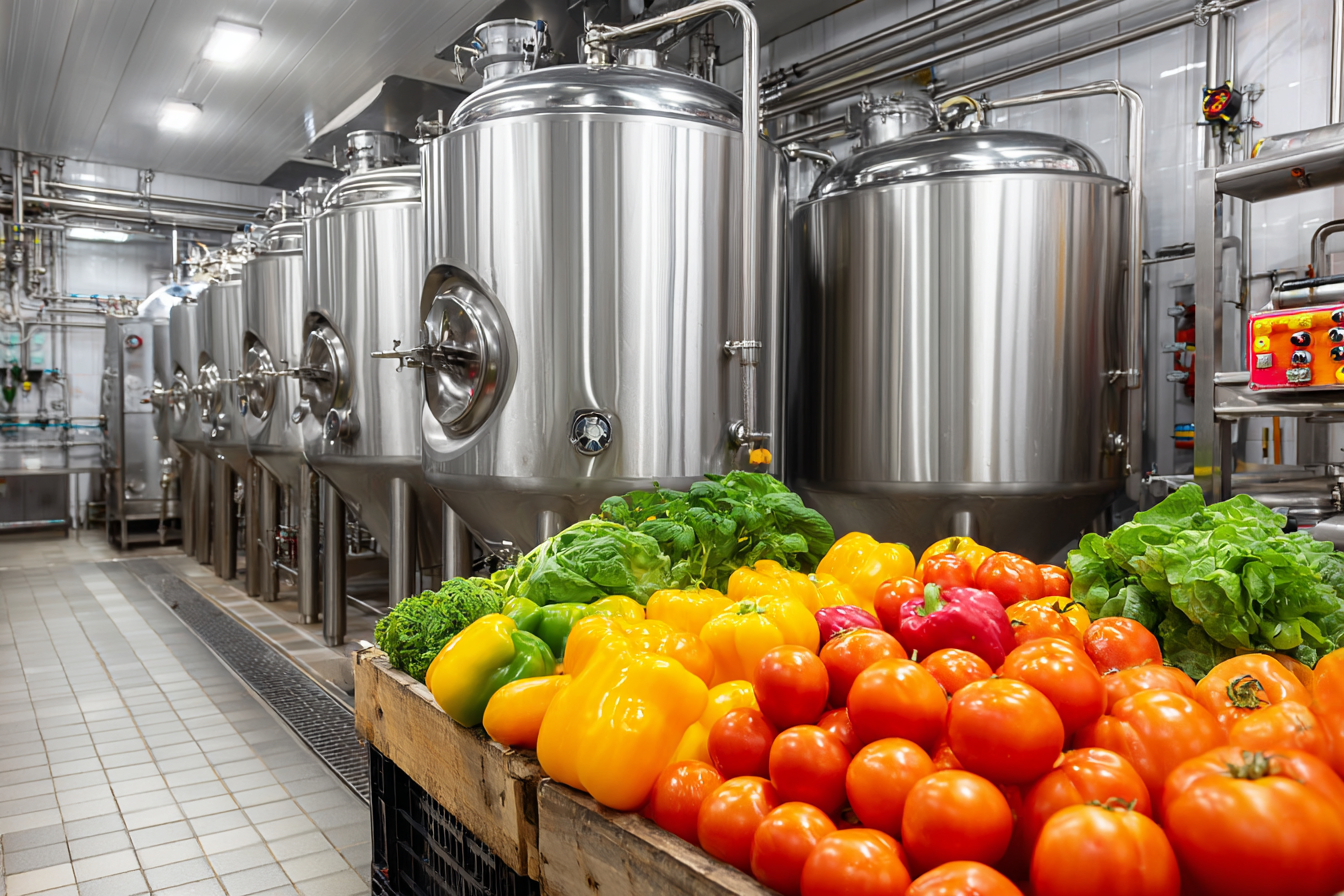Brewing beer at home is an exciting adventure, but when you start experimenting with vegetable beer, it becomes even more unique and rewarding. Vegetables add layers of flavor, color, and nutrition to your brew, but they also require some special considerations and equipment. While you can get by with basic homebrewing gear, having the right tools specialized for handling and brewing with fresh veggies will improve your process and the final product. Whether you’re incorporating pumpkin, beets, carrots, or even leafy greens, the correct equipment can make all the difference in extracting those flavors cleanly and safely.
Standard Brewing Equipment You’ll Still Need
Before diving into vegetable-specific tools, it’s important to recognize the foundation of any great homebrew: the standard brewing equipment. The following items are essential for practically every beer recipe you’ll make, including vegetable-infused ones:
- Fermentation Vessel: Usually glass carboys or food-grade plastic buckets where your wort will turn into beer.
- Brew Kettle: A large pot (typically stainless steel) to boil your wort and vegetables.
- Airlock or Blow-off Tube: To release CO2 during fermentation without letting contaminants in.
- Hydrometer or Refractometer: For measuring the specific gravity and tracking fermentation progress.
- Sanitizing Solution: Keeping all equipment sterile to avoid off-flavors or infections is vital.
- Bottling or Kegging Gear: For packaging your finished beer.
These basics set the stage, but adding vegetables to your brew means additional preparation and extraction steps.
Essential Tools for Preparing and Handling Vegetables
Unlike malted grains or hops, vegetables require that you work with fresh, often bulky produce. Proper preparation ensures you extract the best flavors while maintaining sanitary conditions. Here are some key tools to have on hand:
- Cutting Board and Sharp Knives: Cleaning and finely chopping your vegetables, such as carrots or zucchini, helps maximize surface area for flavor release.
- Vegetable Peeler: Useful for removing skins that might impart unwanted bitterness or dirt.
- Grater or Food Processor: For shredding tougher vegetables like beets or cauliflower to help break down cell walls and boost flavor absorption.
- Steam Basket or Steamer: Some vegetables benefit from light steaming before adding them to the kettle to soften them and reduce undesired raw flavors.
- Colander or Strainer: To rinse washed veggies thoroughly and drain excess water before brewing.
- Measuring Scale: Accurate weighing is critical in recipe consistency, especially when experimenting with different vegetables, as quantities can drastically influence taste and texture.
Equipment for Infusing Vegetables During Brewing
Vegetables can be introduced to your beer during various stages of the brewing process — whether in the boil, mash, or secondary fermentation. Certain brewing tweaks and equipment come in handy to manage these additions effectively.
- Mesh Bags: Using food-grade mesh bags to contain vegetables during the boil or fermentation prevents large floating debris and simplifies removal.
- Immersion Wort Chiller: Bringing wort temperature down quickly after boiling preserves the fresh veggie flavors and reduces the risk of contamination.
- Secondary Fermentation Vessel: Adding vegetables during secondary fermentation requires an extra fermenter where flavors meld without the harshness of boiling.
- Fine Mesh Strainers or Spoons: To fish out vegetable pieces before bottling, ensuring clarity and preventing off-textures.
- pH Meter or Test Strips: Since vegetables can alter the wort’s pH, monitoring acidity helps maintain an optimal environment for yeast and flavor development.
Cleaning and Sanitation: A Must to Avoid Off-Flavors
When brewing with fresh vegetables, the risk of contamination by molds, bacteria, or wild yeasts is higher than usual. This makes thorough cleaning and sanitation all the more critical. Here’s what you’ll need:
- Food-Grade Sanitizers: Products like Star San or iodophor are effective and do not require rinsing, ensuring all surfaces and utensils are sterilized.
- Cleaning Brushes and Sponges: For scrubbing kettles, fermenters, and smaller tools.
- Detergents Specifically for Brewing Gear: Such as PBW (Powdered Brewery Wash), to remove organic residues that vegetables might leave behind.
- Dedicated Vegetable Washing Bin: A sanitary basin or tub devoted to vegetable cleaning helps prevent cross-contamination with other brewing equipment.
- Heat Sanitization: Using boiling water or steam for utensils that come in heavy contact with vegetables further reduces microbial presence.
Budget-Friendly Tips for Vegetable Beer Homebrewers
Getting started with vegetable beer brewing doesn’t mean you have to break the bank. Here are ways to keep your costs down while still having quality tools:
- Repurpose Kitchen Tools: Use your existing vegetable peelers, graters, and cutting boards, just ensure they are clean and designated for brewing use.
- Use Larger Mesh Strainers or Pillowcases: Instead of expensive grain bags, clean cloth pillowcases can hold veggies during boil or fermentation.
- Buy Equipment in Sets: Starter homebrew kits often include multiple crucial items at a discount compared to buying piecemeal.
- Shop Secondhand: Look for used glass carboys or fermenters via local homebrew clubs or classifieds.
- Grow Your Own Vegetables: Growing small amounts of key ingredients at home can reduce costs and ensure freshness.
Recommended Brands and Suppliers
For those ready to invest in specialized equipment, several reputable suppliers provide quality gear tailored to vegetable beer brewing:
- Brewcraft USA: Offers high-quality brew kettles, fermentation vessels, and immersion chillers known for durability and precision.
- MoreBeer!: A favorite among homebrewers for starter kits, mesh bags, and kitchen-grade sanitizers suitable for vegetable brewing.
- Speidel: Known for robust fermenting containers that can handle added solids like veggies safely.
- Sanitizer Brands like Star San: Easily available online or in homebrew shops, crucial for maintaining hygiene.
- Specialty Brewing Suppliers like Blichmann Engineering: Offers premium kettle accessories and processing tools for serious homebrewers exploring diverse ingredients.
When sourcing vegetables, consider local farmers’ markets for fresh, organic produce that enhances flavor and aroma without unwanted pesticides or chemicals that might interfere with fermentation.
Setting Yourself Up for Vegetable Beer Brewing Success
Venturing into vegetable beer brewing is a unique and creative pursuit that can yield delicious and nutritious results. However, achieving the best outcomes means equipping yourself with both the foundational brewing tools and some specialized gear for handling and incorporating fresh vegetables. From prepping and chopping to managing infusion and maintaining sanitary conditions, every step benefits from the right equipment. Whether you’re a budget-conscious beginner or an experienced brewer looking to expand your repertoire, aligning your tools with your ambitions will make the entire process more efficient and enjoyable, setting you up for flavorful and successful vegetable beers every time.







